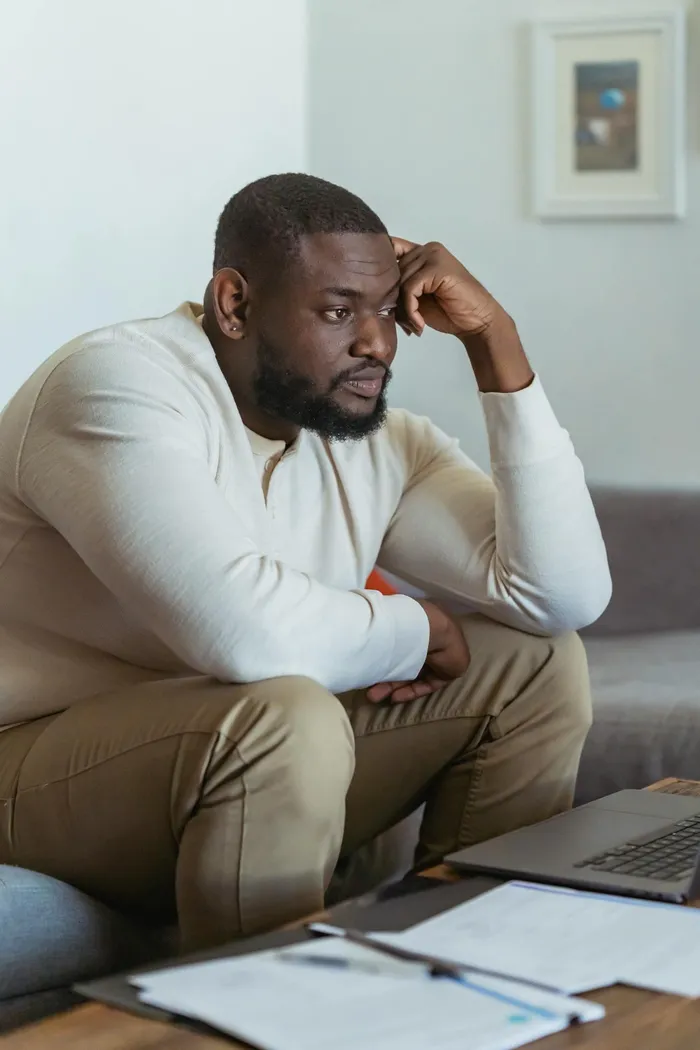Are you emotionally drained? Here's how to spot and handle toxic relationships

Just as we declutter our homes, it’s essential to assess and “spring clean” our relationships. Ask yourself, does this relationship bring me joy or stress?
Image: Keira Burton/pexels
Relationships, whether platonic or romantic, have the power to uplift us and add depth to our lives. But what happens when a relationship becomes a source of stress rather than support?
While nourishing relationships can improve our mental and physical health, emotionally draining ones can have the opposite effect, leaving us exhausted, anxious and even physically unwell.
If you’ve ever walked away from a conversation feeling completely depleted or caught yourself dreading seeing someone, you may have encountered an emotionally draining relationship.
These connections don’t always start this way, but over time, they can morph into one-sided dynamics that weigh heavily on our well-being.
Let’s dive into the signs of emotionally draining relationships, why they take such a toll on us, and how to protect yourself while maintaining your compassion and kindness.
What is an emotionally draining relationship?
The term "toxic" is often overused, but Dr Patrice LeGoy, as cited by "Verywell Mind", defines toxic behaviours as actions that demean, manipulate or gaslight others, often leaving one person feeling unsupported and undervalued.
While not every emotionally draining relationship is outright toxic, these dynamics can still harm your mental health and leave you feeling like you’re shouldering someone else’s burdens without reciprocity.
It’s natural to offer support to friends and loved ones during tough times. After all, listening and empathising are key components of strong relationships.
But when the support becomes one-sided, where you’re always the listener, the fixer or the emotional crutch, it can drain your energy and leave little room for your own needs.

If the relationship has become toxic or harmful, ending it might be the healthiest choice. Be honest but kind when explaining your decision.
Image: Keira Burton/pexels
How to recognise an emotionally draining relationship
What you may experience
- You feel exhausted, anxious or frustrated after spending time with them.
- You make regular sacrifices to meet their needs, often at the expense of your own.
- You notice your positive feelings for them fading away.
Red flags in their behaviour
- They vent constantly but rarely ask how you’re doing or listen when you need support.
- Their problems always seem bigger or more urgent than yours.
- They use guilt or manipulation to get your attention or compliance.
- They struggle with envy or jealousy and rarely celebrate your successes.
- They monopolise conversations, leaving little room for mutual exchange.
If these patterns resonate with you, it’s worth reflecting on whether this relationship is nourishing or draining your energy.

If your friend’s issues are persistent or beyond what you can handle, encourage them to seek guidance from a therapist or counsellor. This is particularly important if they show signs of anxiety or depression.
Image: Liza Summer/pexels
Why emotionally draining relationships are harmful
Studies have shown that chronic stress, including stress from unhealthy relationships, can lead to physical and mental health problems.
According to research published in the Journal of Health and Social Behavior, negative social interactions are linked to increased levels of inflammation in the body, which can contribute to conditions like depression, heart disease and chronic fatigue.
The emotional toll can also lead to burnout, especially for those who are naturally empathetic. When you constantly absorb someone else’s negativity, it leaves little room for your emotional resilience.
How to protect yourself without losing compassion
Setting boundaries doesn’t mean you’re being selfish; it means you’re valuing your mental health while still being a caring friend or partner. Here’s how to strike that balance:
1. Refrain from fixing: You don’t need to solve every problem or play the role of therapist. Instead, offer support without taking on their burdens.
A helpful response could be: "You’re a strong person, and I believe you’ll figure this out. What do you think might help?" This approach empowers them while keeping you from becoming overly involved in their struggles.
2. Suggest professional help: If your friend’s issues are persistent or beyond what you can handle, encourage them to seek guidance from a therapist or counsellor. This is particularly important if they show signs of anxiety or depression.
You can say: "I care about you and I think talking to a professional could really help you navigate this."
3. Establish boundaries: Recognise and communicate your limits. For example, if a friend constantly calls late at night to vent, you might say: "I want to be here for you, but I need to set some boundaries. Can we talk during the day instead?"
4. Know when to distance yourself: Not all relationships are meant to last forever. If you’ve tried setting boundaries and the relationship remains draining, it may be time to create some distance.
This doesn’t mean you have to cut ties completely, but reducing the time and energy you invest can help you regain balance. If the relationship has become toxic or harmful, ending it might be the healthiest choice. Be honest but kind when explaining your decision.
Just as we declutter our homes, it’s essential to assess and “spring clean” our relationships. Ask yourself:
- Does this relationship bring me joy or stress?
- Is it balanced, or am I giving more than I’m receiving?
- Do I feel valued and supported?
As the saying goes, “You can’t pour from an empty cup.”
Take care of yourself first and you’ll be better equipped to show up for the people who truly matter.